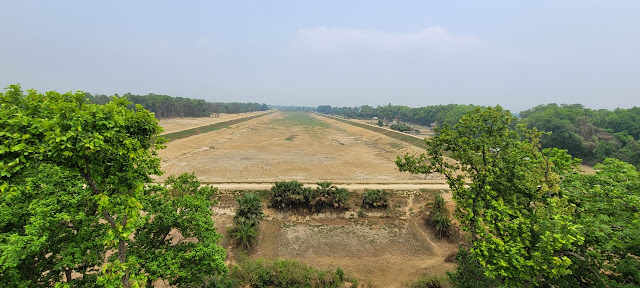Abuse of religion: old tricks at play
 This picture published in the daily Sangram in 1971 shows members of the fourth Razakar Force taking oath over the holy Quran after completing training under Rajshahi Peace Committee in 1971.
This picture published in the daily Sangram in 1971 shows members of the fourth Razakar Force taking oath over the holy Quran after completing training under Rajshahi Peace Committee in 1971.
Read Julfikar Ali Manik's story
Religion was the major weapon of the anti-liberation elements including Jamaat-e-Islami in their attempts to foil the birth of Bangladesh and in helping the Pakistani invaders, who launched genocide triggering the nation's armed struggle for independence on March 26, 1971.
"Jamaat-e-Islami cherishes Pakistan and Islam as an inseparable entity," commented former Jamaat ameer Golam Azam in 1971. He was also the chief of the East Pakistan unit of Jamaat during the Liberation War.
Jamaat's mouthpiece the daily Sangram covered a speech by Golam Azam in 1971. "Pakistan is the house of Islam for the world Muslims. Therefore, Jamaat activists don't justify being alive had Pakistan disintegrated," Golam Azam was quoted by Sangram as addressing a reception of Jamaat ministers at defunct Hotel Empire in Dhaka.
Jamaat incumbent Ameer Motiur Rahman Nizami, who was the chief of Islami Chaatra Sangha, student wing of Jamaat in 1971, said in an article, "Sacred land Pakistan is the home of Allah for establishing His rules."
Nizami, who has succeeded Golam Azam, had also labelled the freedom fighters as "khodadrohi" [rebels against Allah].
He said in that article, "The cowards [freedom fighters] who are against Allah have attacked this holy land [Pakistan]."
"Will the holy occasion of Shab-e-Qadr be able to evoke our courage to establish true peace and welfare through resisting all the attacks launched against Pakistan and Islam?" he asked.
Historical documents and news reports published during and after the Liberation War show that Nizami was the commander-in-chief of Al-Badr.
The Sangram quoted him on September 15, 1971 as saying: "Everyone of us should assume the role of a Muslim soldier of an Islamic state and through cooperation to the oppressed and by winning their confidence we must kill those; who are hatching conspiracy against Pakistan and Islam."
These are the few examples of the anti-liberation political elements, which stood against independence of Bangladesh with the Pakistani occupation forces when the freedom fighters were sacrificing their lives to liberate motherland.
Several political elements of Bangladesh had not only campaigned against liberation but also actively helped Pakistani forces commit genocide. Although some of these elements gradually disappeared from the political scene, some others like Jamaat became more and more powerful.
Jamaat leaders had also formed some paramilitary wings like Razakar and Al-Badr during the Liberation War. These wings worked as the auxiliary forces of the Pakistani military and also killed many pro-liberation people across the country.
Records show that Jamaat formed Razakar and Al-Badr to counter the freedom fighters. Razakar force was established by former Jamaat secretary general Moulana Abul Kalam Mohammad Yousuf, while Al-Badr comprised the Islami Chhatra Sangha activists.
During the nine-month bloody Liberation War, Pakistani forces and their Bangladeshi collaborators committed genocide and war crimes that left three million people killed and around quarter million women violated besides the planned elimination of the best Bangali brains on December 14, 1971.
Anticipating sure defeat, the Pakistani forces and their collaborators -- Razakar, Al-Badr and Al-Shams [mostly leaders of Jamaat and its student front] -- picked up leading Bangali intellectuals and professionals on December 14 and killed them en masse in an attempt to intellectually cripple the nation.
Demand for the trial of war criminals is one of the oldest issues of the country linked to the birth of Bangladesh.
Despite their defeat on December 16, 1971 with the Pakistani army, remnants of the collaborators have apparently never left their fight in the last 38 years. Even the nation witnessed it in the same manner in the national elections in December last year.
While the victorious Awami League had campaigned for secular Bangladesh, their main political rivals campaigned with the slogan "save Islam" through ballots.
Establishing Bangladesh as a secular state was one of the major essence of the liberation struggle and to liberate the country from the Islamic republic of Pakistan.
This historical split has not ended even after 38 years of independence as the political elements against liberation have not been tried for their war crimes.
The trial of war criminals is still a big challenge for the newly elected AL government, which led the War of Independence, even after having huge mandate for its major electoral pledges including trying the war criminals.
The demand for trial of war criminals has always been ignored due to several reasons including pressures from home and abroad to save the killers.
When the nation became hopeful about fulfilment of that demand, it has apparently been sidelined following the carnage at Pilkhana BDR headquarters in the name of a mutiny on February 25-26 that left 74 people including 57 army officers killed.
The brutality of the killings has again reminded the nation of many atrocities by the Pakistani occupation forces in 1971.
The investigators of the carnage suspect the aim of such a heinous act was, among others, to foil the government's firm move to try the war criminals.
-- Edited by Al Mamun Russell


Comments
Post a Comment